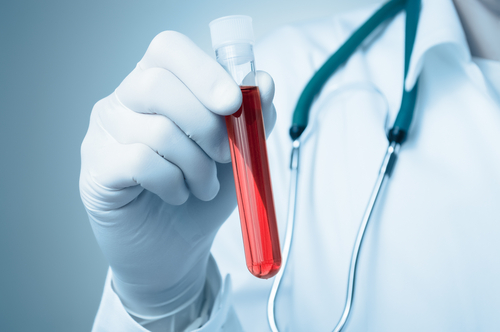Scientists at the Cancer Research UK Manchester Institute found that a simple blood test may tell how well patients with small-cell lung cancer (SCLC) will respond to chemotherapy.
The study, “Molecular analysis of circulating tumor cells identifies distinct copy-number profiles in patients with chemosensitive and chemorefractory small-cell lung cancer,” was published in the journal Nature Medicine.
In most patients, SCLC is initially chemosensitive, meaning they respond well to chemotherapy at first, although resistance to treatment develops over time. In a minority of patients, however, relapse occurs within three months of initial treatment; in these cases, the disease is defined as chemorefractory.
Obtaining tumor samples from patients with lung cancer through biopsy can be difficult, because the tumor can be hard to reach and samples obtained are often too small to determine a best treatment. Blood samples from patients with advanced cancers may be an alternative way of getting a disease snapshot.
Researchers isolated circulating tumor cells (CTCs) — cells that have broken away from the primary cancer — from the blood of 31 patients with SCLC. Analyzing these cells, they found that patterns of genetic faults, measured before the initiation of the treatment, were associated with how well and how long many of these patients responded to treatment (83.3% of the samples were correctly identified as chemorefractory or chemosensitive).
Researchers also examined the genetic alterations in patients who initially responded well to chemotherapy but later relapsed. A different genetic pattern was seen in circulating tumor cells between these patients and SCLC patients who never responded well. These findings led the researchers to consider that the genetic basis for initial resistance to chemotherapy differs from that underlying acquired chemoresistance.
“Our study reveals how blood samples could be used to anticipate how lung cancer patients may respond to treatments. Unfortunately, we have very few treatment options for patients with SCLC, and none at all for those whose cancer is resistant to chemotherapy,” Professor Caroline Dive, the study’s lead researcher, said in a news release. “By identifying differences in the patterns of genetic faults between patients, we now have a starting point to begin to understand more about how drug resistance develops in patients with this aggressive form of lung cancer.”

